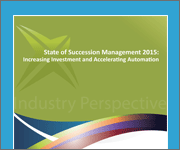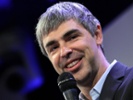Give employees the gift of confidence
The best leaders aim to be a "wellspring of confidence" for their employees, writes Wendy Axelrod. That means offering challenging assignments with thoughtful and respectful feedback, and acknowledging contributions to the team's success. "It is amazing how often managers forget to do this, yet the payback from this relatively small action is very high," Axelrod writes. SmartBrief/SmartBlog on Leadership
(8/10)
Donald Trump is the leader we deserve
 |
|
Trump (Scott Olson/Getty Images)
|
Donald Trump's rise to political prominence is a reminder that narcissism and bombastic self-belief are effective traits for obtaining power and the aura of leadership, writes Jeffrey Pfeffer. We say we want honest, humble servant leaders, but we take comfort in and reward those who have unshakable self-confidence and who bend the truth, Pfeffer explains. "[W]e are complicit in producing leaders of precisely the type we say we don't want," he writes. Fortune
(8/7)
 |
Most orgs lack ready leaders - What about your competitors? In Brandon Hall Group's 2015 State of Succession Management Study, we learn that 84% of respondents are largely unprepared and in fact, suffer from a lack of ready leaders. What are you doing to get ahead of your competition to ensure leadership—and business—continuity? Download complimentary industry research now for practical takeaways. |
|
Google reorganizes under Alphabet holding company
 |
|
Page (Justin Sullivan/Getty Images)
|
Google is transforming its corporate structure to deal with diversification beyond its original Internet search business into unrelated areas, including self-driving cars, drones, venture capital investment and pharmaceutical research. Larry Page, co-founder and CEO of Google, said he and fellow co-founder Sergey Brin will manage Alphabet, a holding company for Google's many disparate activities. Sundar Pichai, a senior vice president, will become CEO of Google. Bloomberg
(8/10), The New York Times (free-article access for SmartBrief readers)
(8/10), Wired.com
(8/10)
|
How great speakers and performers overcome their nerves
Stage fright is a natural emotion, but practice and preparation can get any speaker ready to deliver, write Camille Sweeney and Josh Gosfield. Presidents Ronald Reagan and Bill Clinton had different tactics but the same goal of connecting with people, while Mark Twain claimed to require "more than three weeks to prepare a good impromptu speech." Fast Company online
(8/5)
|
Inside Wells Fargo's new innovation division
Wells Fargo has developed an internal Innovation Group to be led by mobile-banking pioneer Steve Ellis. He envisions the innovation team less as an ideas factory than as a clearinghouse for creativity from across the organization. "I don't want people at Wells thinking, 'Oh, that's the Innovation Group. They'll come up with all the ideas.' That's a recipe for failure," he says. American City Business Journals/Charlotte, N.C.
(7/31)
|
What are the most important "services" you provide your team?
|
Developing -- training, coaching and growing your team |
 38.14%
38.14%
|
|
Directing -- setting direction, priorities and coordinating efforts |
 30.15%
30.15%
|
|
Doing -- making decisions, clearing obstacles and getting things done |
 26.29%
26.29%
|
|
Delivering -- ensuring quality and managing change |
 5.41%
5.41%
|
How well do you stick to priorities after you set them?
 | Very well -- I rarely deviate from my priorities |
 | Well -- I mostly stick to them but deviate occasionally |
 | Not well -- I have difficulty sticking to my priorities |
 | Not at all -- I neither set nor stick to priorities |
|
How to achieve transparency at scale
Transparency and culture start with the leadership team, especially as companies grow, writes AdRoll CEO Aaron Bell. His company has an online message board where employees can anonymously post questions, which Bell then answers at a weekly all-hands meeting. "I soon learned the larger benefit of publicly addressing issues, rather than letting gossip fester behind closed doors," he writes. Mashable
(8/5)
|
What do you do after discovering the Titanic?
 |
|
(Frederick M. Brown/Getty Images)
|
Maritime explorer Bob Ballard was made famous by his 1985 discovery of the wreck of the Titanic, and he's still exploring the ocean. Among his other feats: finding the wreck of the German battleship Bismarck and discovering the existence of hydrothermal vents, where whole ecosystems thrive around hot springs based in the ocean floor. PopularMechanics.com
(8/4)
|
 |
I have learned that the best way to lift one's self up is to help someone else."
-- Booker T. Washington, educator, writer and orator
|
|
|
Please contact one of our specialists for advertising opportunities,
editorial inquiries, job placements, or any other questions.
|
Mailing Address:
SmartBrief, Inc.®, 555 11th ST NW, Suite 600, Washington, DC 20004
|
|
|